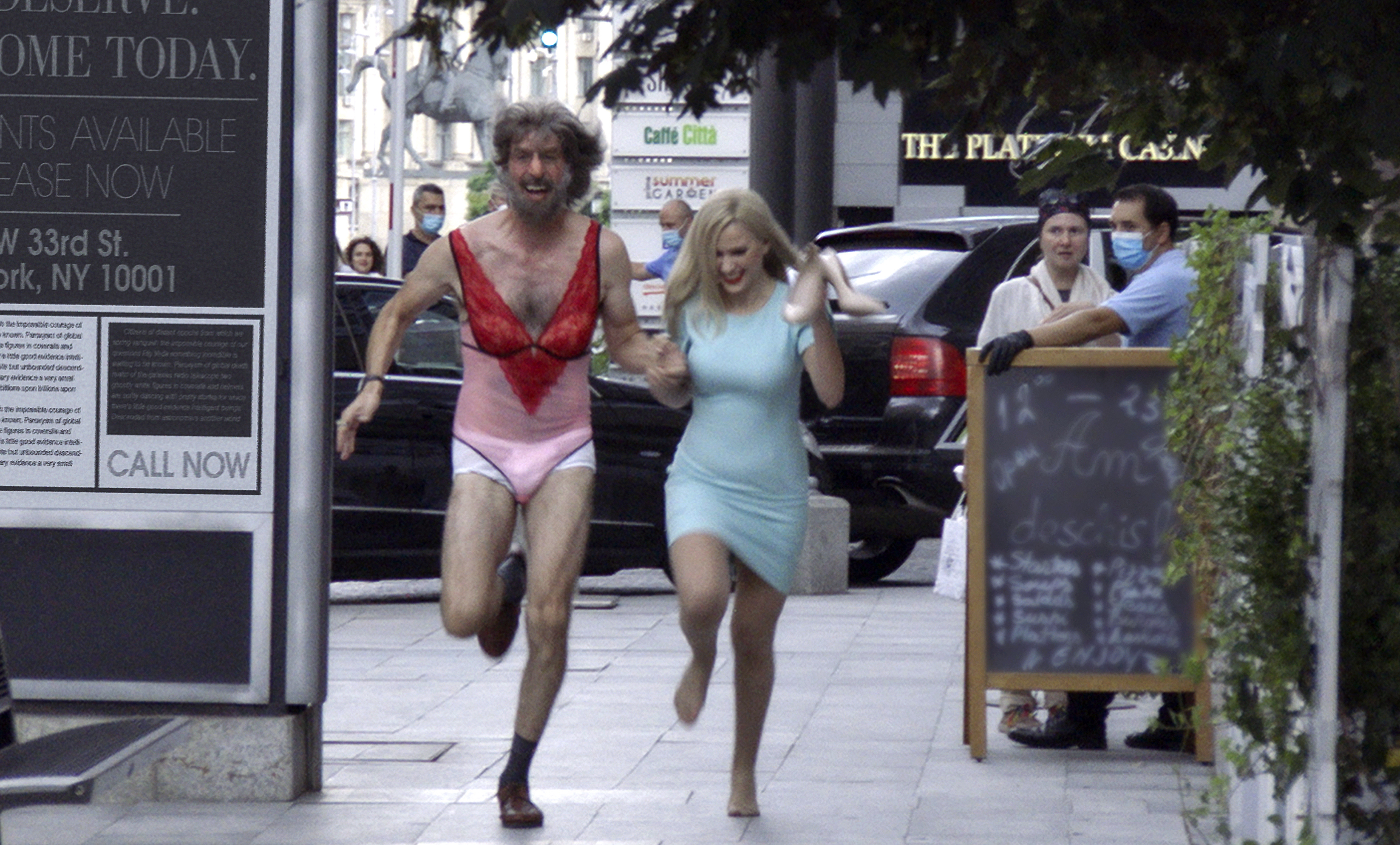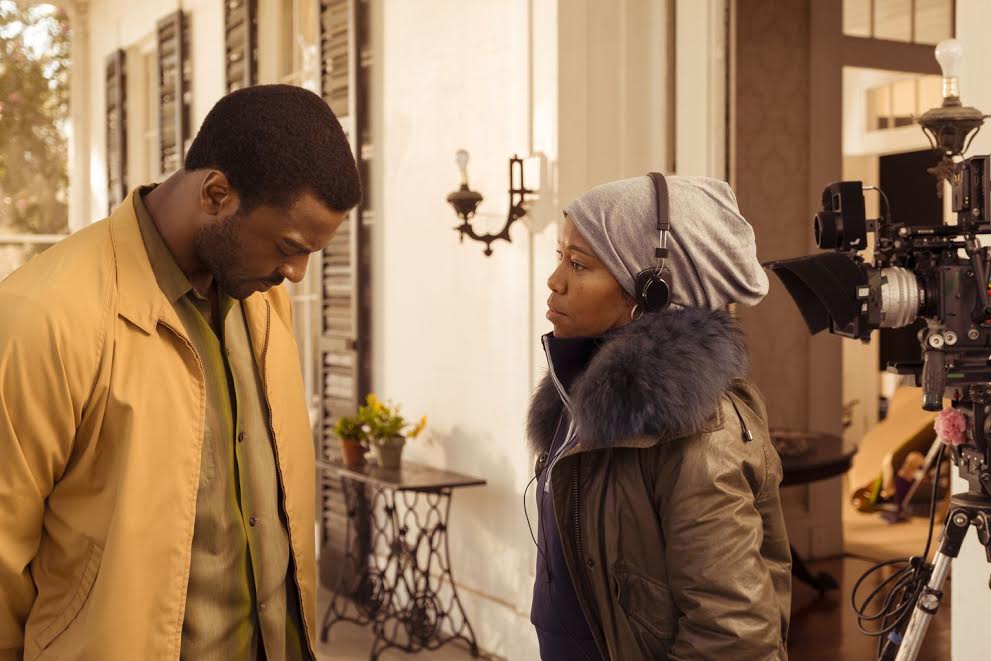by Eric Blume

We have our strongest list of contenders for the Best Adapted Screenplay Oscar that we’ve had in years…I’d argue one of the strongest ever. These five films represent vastly different stories and emphasize different screenwriting strengths, and involve an array of intelligent decisions from the writers in delivering the best cinematic experience possible based on their source material...
There are many writers involved in the screenplay for Borat Subsequent Moviefilm: Delivery of Prodigious Bribe to American Regime for Make Benefit Once Glorious Nation of Kazakhstan (eight for screenplay; four for story). The film is nominated in this category because Oscar’s rule dictates that any movie featuring the same characters from an existing movie are considered adaptations. Looking at the original source material (the first film), the writers made some smart choices in bringing back their titular (anti?)hero.
Borat as a character, property, and film is incredibly divisive. I know folks who can’t even watch it because it makes them too uncomfortable, and there are others who aren’t able to see through the improv element to see the masterful artistry of what this creative team is doing. For this sequel, they needed to bring back a very unlikable character who was originally rooted in a very specific cultural and political time, in a way that felt fresh, relevant, and funny in a new way.
Their adaptation focused on the introduction of Borat’s daughter, which gave us a breathtaking, highwire performance from Maria Bakalova, and gave Sasha Baron Cohen a new arc to play…the relationship allowed Borat to become more human and have some dimension, while putting the two of them in a series of awkward comedy set pieces that remain true to the original tone and energy of the film. The writers retooled the piece to comment brutally upon Trump-era grossness, doubling down on exposing American stupidity and false patriotism. This Borat film is as much expose as comedy, and it’s more finely structured and beautifully shaped than the first iteration.
Finally, it’s easy to assume that improv is never “written”, when in fact it’s often pre-organized to capture certain moments, push certain jokes, etc. I’ve written many improv beats for comedy actors, so they aren’t flailing when they put themselves out there. In this film, the writers are not unafraid to place Cohen and Bakalova in insane and dangerous situations, but they give the actors enough support in the improv points and beats to steer them…they’re armed with direction on how to keep the focus of the scene, but also armed with different ways to pivot. It’s an very ambitious effort from everyone involved.

I wrote the review here for The Father, so I won’t belabor my initial praise too much. But I will say that Florian Zeller further proves his worth as an artist on this picture purely by having the good sense, tact, and lack of ego to have brought in Christopher Hampton to co-adapt the screenplay of Florian’s own play. Think about it: you’re a world-famous playwright who gets to make your first movie, an adaptation of your own acclaimed play. Many artists wouldn’t say, “who should I bring in to help me write the screenplay?”…they’d just adapt it themselves, as they know it best. But Zeller must have spent some time carefully watching Dangerous Liaisons and Atonement, both stunning adaptations from Hampton, and realized the value of bringing another creative partner onboard.
Zeller and Hampton pull off a minor miracle in the film version of The Father, because they are somehow able to maintain the heightened theatrical language of the play…along with its purposefully confusing structure and wicked sleights-of-hand…in a way that feels right for cinema. This team, too, doubles down, here on the intimacy of the piece. They trust to never take us out of their hermetically-sealed universe, but also know that in order to do that, they need to be compelling enough for us to climb into their little coffin so they can keep tightening the screws.

Our presumptive Best Director winner, Chloe Zhao, has received so much rightful attention for her helming of Nomadland that it’s easy to overlook her contribution as a writer to this contemporary masterpiece. The film is based on a non-fiction book by journalist Jessica Bruder. From this text, Zhao created all original characters, all original arcs, all original scenes. She took the essence of the source material and fleshed out a very concrete world based on other peoples’ real experiences.
It’s a work of tender absorption, storytelling skill, and wondrous imagination. Zhao was able to distill a journalistic undertaking into a narrative journey that reflected and honored the flesh-and-blood human travails of the book. Frances McDormand’s Fern and David Strathairn’s Dave are original creations, and Zhao avoids the biggest trap of a project like this: the characters never feel like representations…they’re fully thought-through and complicated. The script shows us several angles of the nomad existence, and nothing feels oversimplified or politicized, even though it is a film about politics on some level. Basically, Zhao as a writer set up Zhao the director for success. Her screenplay laid the groundwork for Zhao the director to come in and tell the story poetically, and to burrow straight into the humanity of the characters she created.

Kemp Powers adapted One Night in Miami from his own play. It’s the rare play-to-movie adaptation that doesn’t come from Broadway or off-Broadway, or from a famous production where we have preconceived notions. Powers’ script is slightly more “opened-up” than The Father, especially in the first third when we’re introduced to each of the four icons.
But as is true of most good stage-to-film adaptations, the film is strongest when the characters are just in a room talking, especially when your piece has such big ideas in it, and you have the quartet of actors to put it across so powerfully. Powers breaks up his scenes smartly, though, giving the opportunity for the four actors to interchange with each other, and knowing when to bring them together for a bigger punch. It’s a well-judged, canny adaptation that allows the actors to scale some notes and keep the audience focused on the characters and the themes. Extra points for its funny, light touch whenever possible.

It was satisfying to see Ramin Bahrani snare a nod for his adaptation of The White Tiger. Aravind Adiga’s novel was a stone cold masterpiece of broiling rage, particularly strong because of Adiga’s specific prose style, giving his murderer protagonist a voice of vicious bile. Bahrani was smart to temper the intensity of the main character…he has allowed for a more complete arc for the main character, allowing lead Adash Gourav a chance to ease the audience into his plight with a persuasive and moving journey. Bahrani saves the original earned malignity for the film’s second half, once we’re fully aligned with the various injustices.
Globalization is a primary theme in the novel, whereas Bahrani turns it into a secondary theme, another smart decision, as Bahrani’s concern is the human drama and an examination of slave mentality and oppressive power structures. He doesn’t dwell on the novel’s framing device, which are letters from the protagonist to the Chinese Premier. Bahrani is more concerned with contrasting visual environments that display economic disparities and the multiple sides of the beautiful, intense country of India. Bahrani focuses his screenplay so it deep-dives us into a world that feels both foreign and familiar.
This category is quite frankly an embarrassment of riches. We were really lucky to get these five films this year. My vote would go to The Father, but any of these films make a worthy winner. Who gets your vote?
OTHER CATEGORY REVIEWS
- Adapted Screenplay
- Cinematography
- Costume Design
- Makeup and Hair
- Original Song
- Sound
- Visual Effects
- Documentary Feature
- Shorts, Animated
- Shorts, Doc
- Shorts, Live Action
plus
- Um... who is winning best actress?
- Double acting nomination complications
- How often does Best Actor go to a non-Best Picture nominated film?
- New Oscar records
- History of Posthumous Oscars
- Oldest Best Actor Nominees of all time (two are from this year!)